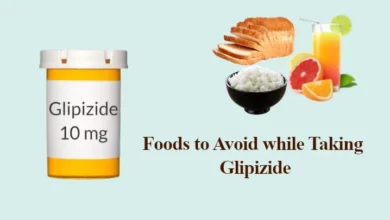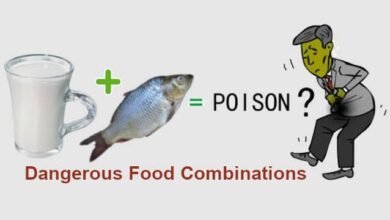Breaking The Stigma: Seeking Help For Alcohol Addiction

One of the most difficult aspects of seeking help for alcohol addiction is overcoming the stigma that is attached to it. Even though alcoholism (and drug addiction for that matter) affects numerous millions of people in this country and the rest of the world, there is still far too much misinformation and misunderstanding regarding the causes of and reasons for it.
And ever since the pandemic, the number of people who would identify as heavy drinkers, binge drinkers, or outright alcoholics has only risen. For many, the biggest obstacle to getting treatment for alcohol addiction is the aforementioned stigma.
Those who aren’t familiar with the underlying issues of alcoholism (such as genetic predisposition, depression or other meant health issues, a coping mechanism) often see the need to get help as weakness, lack of self-discipline, or some kind of moral failing.
Nothing could be further from the truth. The fact is that this is a disease, and diseases need treatment. With that being understood, let’s take a deeper look at these stigmas and how to conquer them:
1. Understanding the Stigma
The misconceptions that revolve around alcohol abuse stem from various misgivings and societal attitudes about addiction. Many people look at addiction as a lack of willpower.
What they fail to recognize is the fact that alcoholism is a complex and complicated medical condition involving physiological, physiological, and social aspects.
These misconceptions can lead to feelings of guilt, shame, self-blame, and self-hatred among those who are struggling with substance abuse issues. This, in turn, makes it much more difficult and discouraging to seek treatment.
Additionally, various stereotypes further marginalize people battling addiction and may interfere with them seeking help due to the fear of discrimination or judgment.
2. Breaking the Stigma
To break the stigmas associated with alcohol abuse, a multifaceted approach is necessary. This includes such things as substance abuse education, empathy for the patient, and advocacy on their behalf.
By standing up to the misconceptions and adopting a supportive and safe environment, individuals can find encouragement and seek treatment for alcohol addiction without the fears of judgment and discrimination mentioned in the previous section.
Education
This plays a crucial role in breaking down stigmas by increasing people’s understanding and awareness regarding addiction as a serious health condition. By providing information about the psychological and biological factors that contribute to substance abuse, we can begin to dispel stereotypes and debunk myths and false perceptions.
This education can empower people battling addiction to see it as a treatable condition rather than a personal shortcoming. This helps to reduce guilt and shame while encouraging help-seeking behavior.
Empathy
Fostering compassion and empathy for those suffering from addiction is vital for creating a safe and supportive community.
Instead of stigmatizing these individuals, we need to provide encouragement and understanding, with an emphasis on showing them that substance abuse issues can happen to anyone, anywhere, anytime.
This practice also helps them to understand that their value is not determined or diminished by their addiction. When you promote empathy as part of the process, you help to create an environment where people feel supported and accepted in their quest to recover and live a healthier life.
Advocacy
Advocating on behalf of those who are looking to get treatment for alcohol addiction is paramount in overcoming systemic barriers and advancing policies that emphasize treatment and support services.
These advocates play a critical part in elevating the voices of people who are struggling with this disease, getting better care options, as well as confronting discriminatory behaviors and practices.
By working towards changing policy and dedicating resources for prevention and treatment, we can tear down those barriers that work to discourage people from seeking help.
Overcoming Barriers to Treatment
Even once you’ve pushed through many or all of the stigmas surrounding alcohol dependency, there are still numerous obstacles that can potentially stand in the way of someone trying to receive treatment for alcohol addiction.
For example, there could be limited access to treatment facilities, financial constraints, as well as concerns over possible repercussions; such as legal consequences or losing one’s job.
Dealing with these barriers requires a comprehensive approach, including implementing anti-discrimination statutes, expanding access to affordable treatment plans, and offering support for those who may be facing employment or legal concerns.
In addition to these things, addressing potential mental health concerns that may be co-occurring is critical in making sure that comprehensive care is provided for those seeking help with their addiction. One of the most common reasons for addiction is when individuals attempt to cope with these various mental health issues by using (and ultimately abusing) alcohol.
Conditions like anxiety, depression, and trauma are just three of the many underlying issues that can contribute to addiction. Incorporating mental health treatment concurrently with alcohol treatment helps to get to the root of the problem instead of just the symptom, aiding in the success of long-term recovery.
Get Treatment for Alcohol Addiction ASAP
Breaking substance abuse stigmas are crucial in promoting positive and constructive behavior when it comes to seeking help. It also greatly improves the outcomes of such treatments.
By taking on these misconceptions head-on, advocating for quality, accessible treatment programs, and fostering a sense of empathy and compassion, we can build a supportive and safe environment for people to be able to find help without fear of judgment.
By working together we can break down the invisible walls that prevent individuals struggling with addiction from finding the assistance they need to get better and begin their journey of sobriety.





